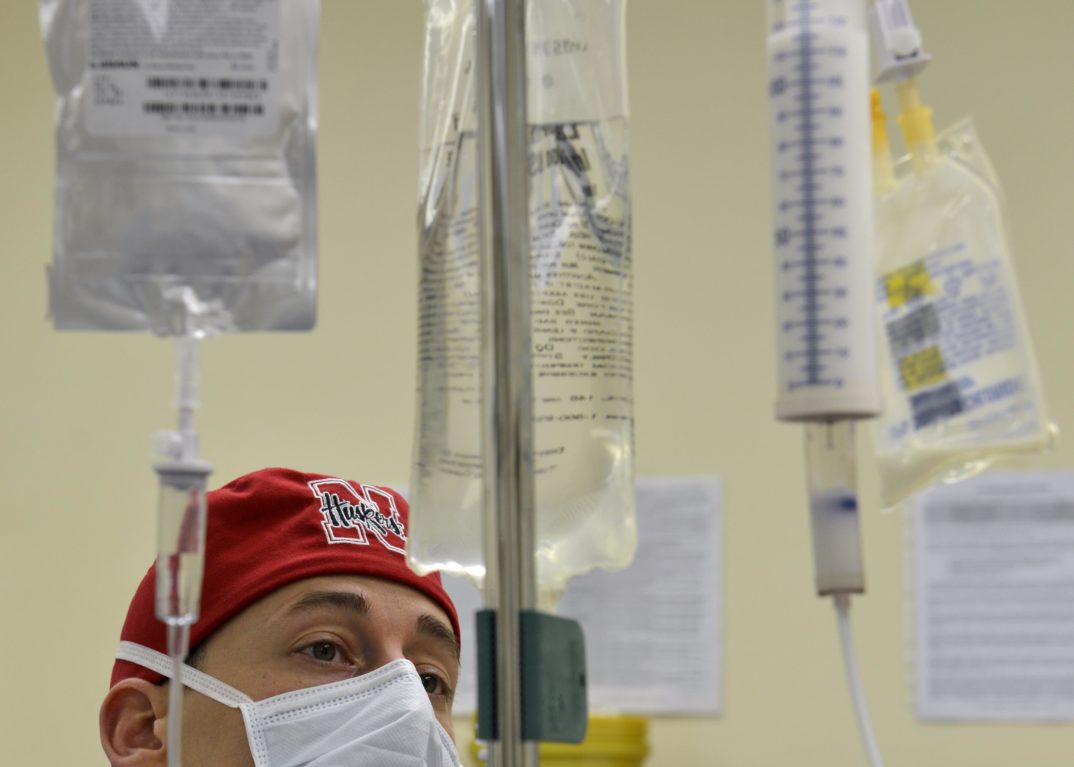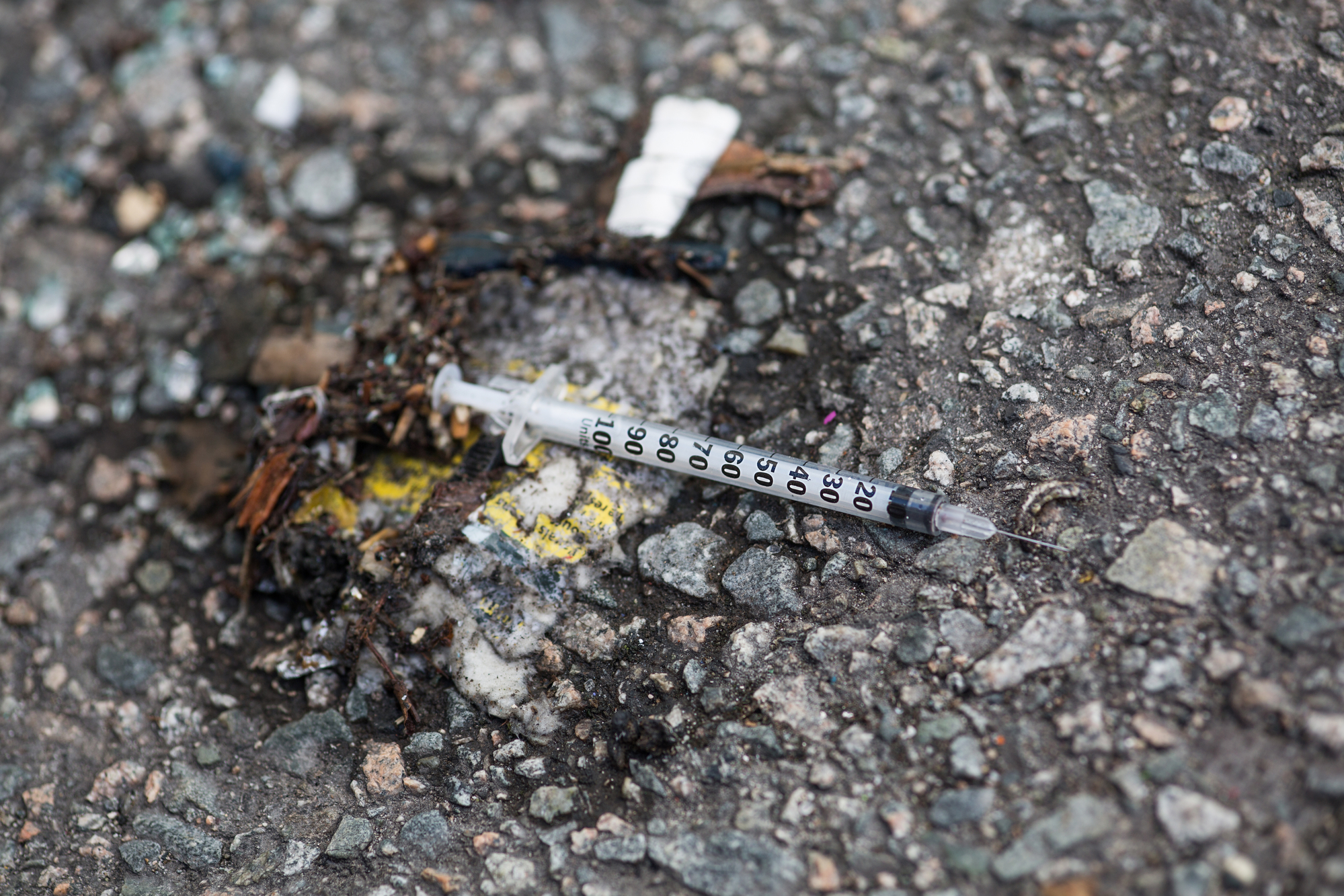Do Terminally Ill Patients Have a “Right to Try” Experimental Drugs?
This article has a set of discussion questions tailored for classroom use. Click here to download them. To see a full list of articles with discussion questions and other resources, visit our “Educational Resources” page.
In his recent State of the Union speech, President Trump urged Congress to pass legislation to give Americans a “right to try” potentially life-saving experimental drugs. He said, “People who are terminally ill should not have to go from country to country to seek a cure — I want to give them a chance right here at home. It is time for the Congress to give these wonderful Americans the ‘right to try.’” Though only a brief line in a long speech, the ethical implications of the push to expand access to experimental drugs are worth much more attention.
First, let us be clear on what federal “right to try” legislation would entail. Generally, a new drug must go through several phases of clinical research trials before a pharmaceutical company can successfully apply for approval from the Food and Drug Administration to market the drug for use. Advocates of “right to try” legislation want some terminally ill patients to have access to drugs before they go through this rigorous and often protracted process. Recent legislation in California, for example, protects doctors and hospitals from legal action if they prescribe medicine that has passed phase I of clinical trials, but not yet phase II and phase III. Phase I trials test a drug for its safety on human subjects. Phase II tests drugs for effectiveness. Phase III tests drugs to see if they are better than any available alternative treatments.
Thus, “right to try” is a misnomer. First, these experimental drugs are still expected to meet some safety standards before patients can access them. Second, such legislation would not likely mandate that a pharmaceutical company provides access to their experimental drugs. The company can always deny the patient’s request. Third, these laws do not address cost issues. Insurance plans are unlikely to cover any portion of the costs, and pharmaceutical companies are likely to expect the patient to foot the entire bill.
Ethical debate over “right to try” legislation recapitulates a conflict that regularly occurs in American political debate: to what extent does government intervention to protect public welfare by ensuring that drugs are both safe and effective impede the rightful exercise of a patient’s autonomy to choose for herself what risks she is willing to take? Advocates of expanded “right to try” laws view regulatory obstacles set up by the FDA as patronizing hindrances. Lina Clark, the founder of the patient advocacy group HopeNowforALS, put it this way: “The patient community is saying: ‘We are smart, we’re informed, we feel it is our right to try some of these therapies, because we’re going to die anyway.’” While safety and efficacy regulations for new pharmaceuticals generally protect the public from an industry in which some bad actors may be otherwise motivated to push out untested and unsafe drugs on an uninformed populace, the regulations can also prevent some well-informed patients from taking reasonable risks to save their lives by preventing them from getting access to drugs that may be helpful. Therefore, it is reasonable to carve out certain exceptions from these regulations for terminally ill patients.
On the other hand, medical ethicists worry that terminally ill patients are uniquely vulnerable to the allure of “miracle cures.” Dr. R. Adams Dudley, director of UCSF’s Center for Healthcare Value, argues that “we know some people try to take advantage of our desperation when we’re ill.” Terminally ill patients may be vulnerable to exploitation of their desire to find hope in any possible avenue. Their intense desire to find a miracle cure may prevent them from rationally weighing the costs and benefits of trying an unproven drug. A terminal patient may place too much emphasis on the small possibility that an experimental drug will extend his or her life while ignoring greater possibilities that side effects from these drugs will worsen the quality of the life he or she has left. Unscrupulous pharmaceutical companies who see a market in providing terminally ill patients “miracle cures” may exploit this desire to circumvent the regular FDA process.
The Food and Drug Administration already has “compassionate use” regulations that allow patients with no other treatment options to gain access to experimental drugs that have not yet been approved. The pharmaceutical company still must agree to supply the experimental drug, and the FDA still must approve the patient’s application. According to a recent opinion piece in the San Francisco Chronicle, nearly 99 percent of these requests are granted already. “Right to try” legislation at the federal level would not likely mandate that pharmaceutical companies provide the treatment. Such legislation would likely only remove the FDA review step from the process described above.
Proponents of the current system at the FDA view it as a reasonable compromise between respect for patient autonomy and protections for the public welfare. Terminally ill patients have an avenue to apply for and obtain potentially life-saving drugs, but the FDA review process helps safeguard patients from being exploited due to their vulnerable status. The FDA serves as an outside party that can more dispassionately weigh the costs and benefits of pursuing an experimental treatment, thus providing that important step in the rational decision-making process that might otherwise be unduly influenced by the patient’s hope for a miracle cure.





